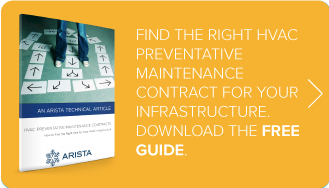Who Me? Find an HVAC Service Provider?
If you work for a smaller operation, chances are you wear a lot of different hats. Even if you were hired to do a specific job, periodically you’re probably asked to take on a responsibility that is outside your comfort zone. When you know nothing about the task in question or even where to start, it can be overwhelming to say the least.
If you’ve been asked to get a quote for an HVAC service contract, and you wouldn’t know a condenser coil from a HEPA filter, read on for some information about how to get started and what to expect from the best service providers.
Who to call for a quote?
This may seem like the hardest part. Isn’t getting started always the hardest part? But it’s actually pretty easy. Think about the following and you’ll know who to call:
Which trucks do you see around your neighborhood all the time?
A provider who has a presence in your area can get to you faster. They know the logistics of the area. And they are probably large enough to offer competitive pricing. If you can’t remember the names, try an internet search for HVAC service in NYC. When you see the list of companies that come up, it’s likely you will recognize the names on the trucks you see every day.
Who do your neighbors or colleagues in NYC recommend?
Getting recommendations, especially from a company with similar facilities to yours, can give you a level of confidence that the vendor has a reputation for providing great service.
Before you start to call vendors, gather some basic information about your equipment and your needs, so you’ll be able to answer their questions:
- How many pieces of HVAC equipment do you have?
- What are their approximate ages?
- Are there known issues or are you experiencing problems with your cooling and/or heating?
- What kind of contract are you looking for? Do you want to include parts and/or labor?
It’s okay if you don’t have all the answers, especially for the last question. The vendor representatives should educate you throughout the process so you understand exactly what the contract offers.
The survey
Once you’ve identified a few prospects, call each vendor to schedule an appointment for them to come in to do a survey of your equipment. Answer their questions as best you can, and notice how they talk to you. Are they speaking in technical jargon or explaining things in a way that you can understand?
When you call Arista, we send out a service agreement advisor, who is a skilled technician trained to gather all the data about your equipment and its history. He will make a detailed inventory of each piece of equipment at your site, including make, model and serial numbers. Your service advisor will also note the condition of equipment, pointing out any evident damage or existing problems. In some cases, you will want to deal with certain problems in advance or exclude some items from the agreement. With this information, we can put together a customized plan based on your organization’s unique needs.
The proposal
Within a week or so, you should have a full proposal from each vendor. Be sure to let each vendor know how you’d like to receive your proposal: would you like a hard copy or email? Also many vendors are happy to come in and meet with you to go over the details and answer any questions.
Often, the language and format of a contract will provide an important first clue if a vendor is right for you. Do they state things as clearly and simply as possible, or do they hide behind complicated language that is difficult to interpret? Are contracts professionally written and presented, or do they appear sloppy and incomplete?
If not provided with the contract, ask each vendor about how they can help you get started, and even transition from a previous provider, after you sign an agreement. For example, Arista sends a welcome letter that provides you with information about who to contact for all your needs as a new customer.
Comparing the offerings from each vendor can be the most difficult part of the process. Some may offer different types of contracts that cover different things, so you’re trying to compare apples to oranges. Some companies may offer a multi-year agreement, which is nice for you because you can lock in a price for a longer period of time, but again makes it harder to compare offerings.
If you need help understanding the ins and outs of service contract terms and deciding what’s best for your company, grab a free copy of our helpful guide to HVAC Preventative Maintenance Contracts: How to Find the Right One for Your Infrastructure.

